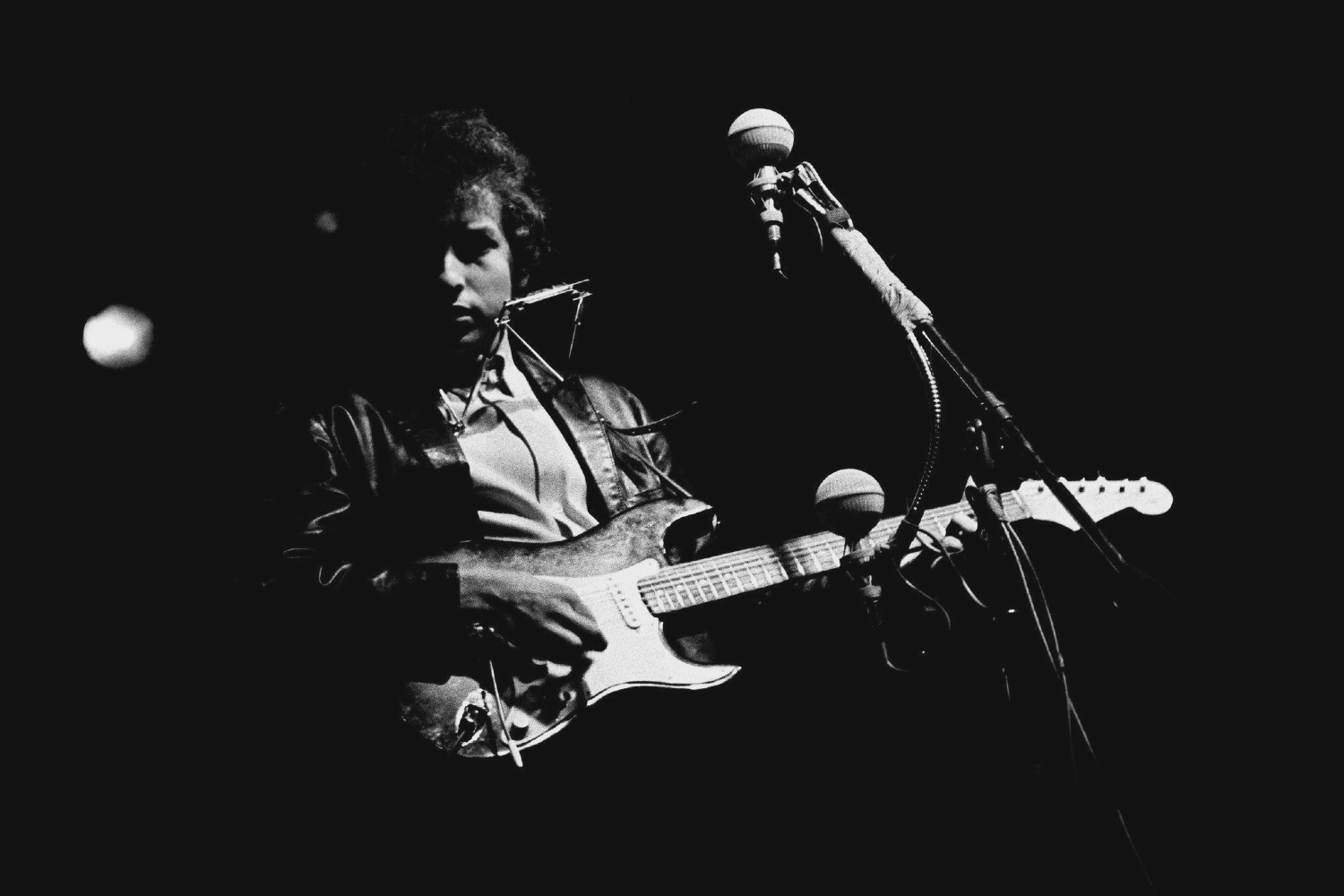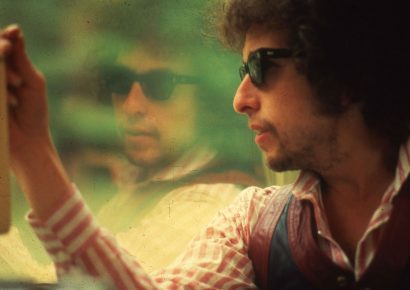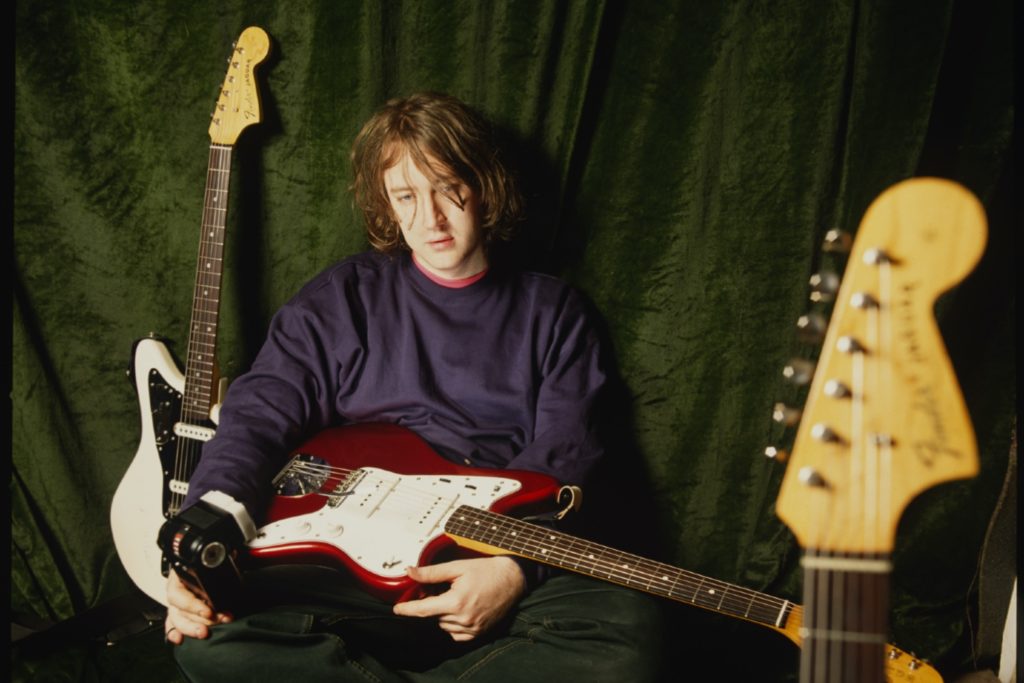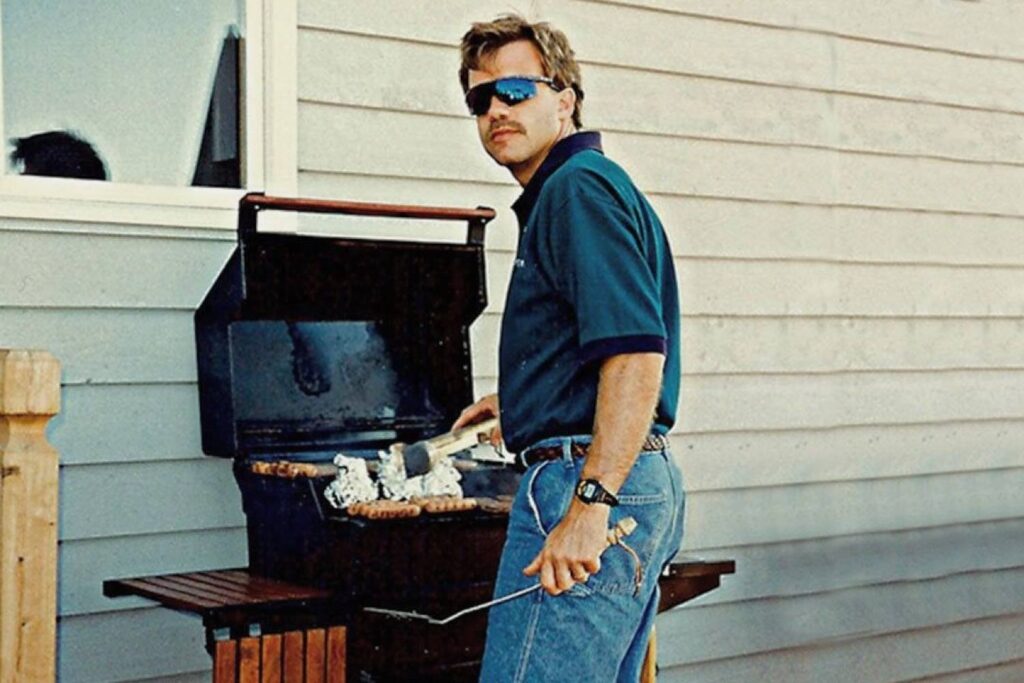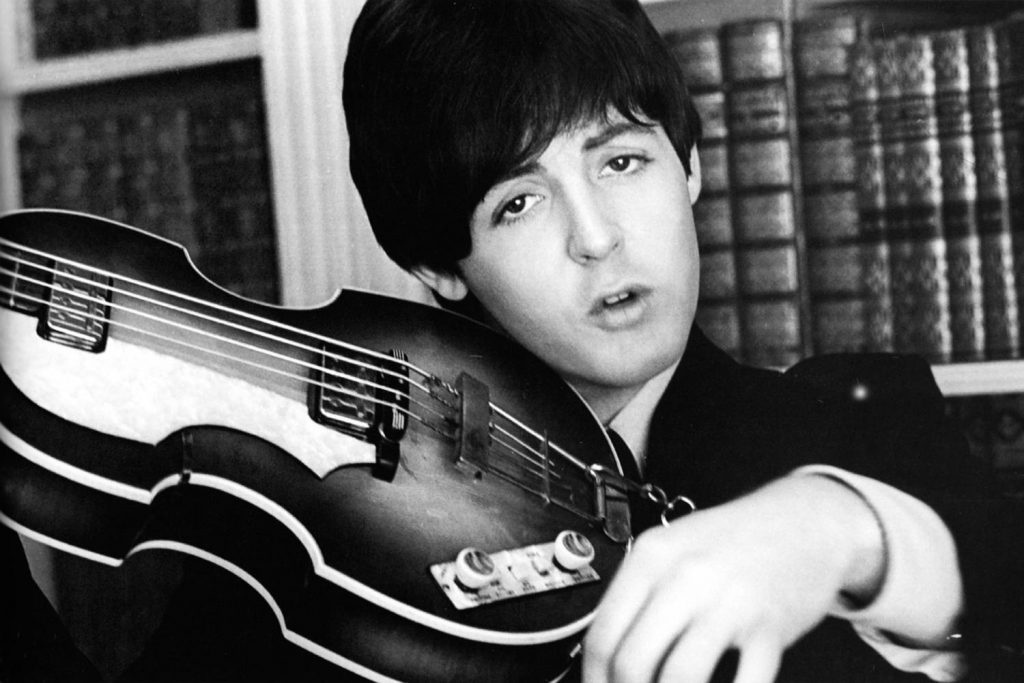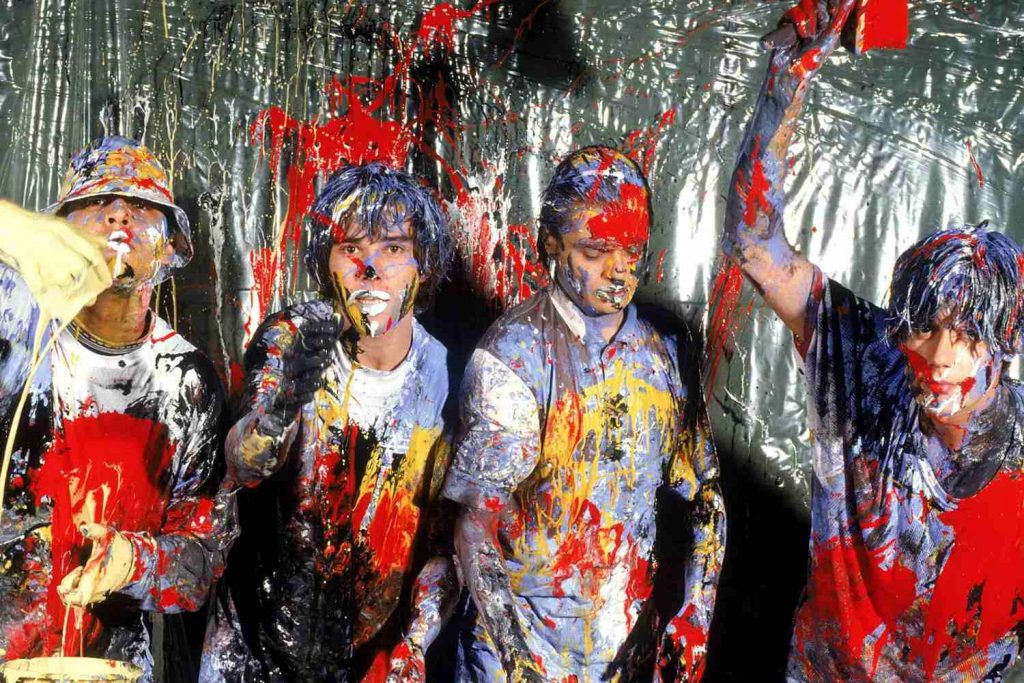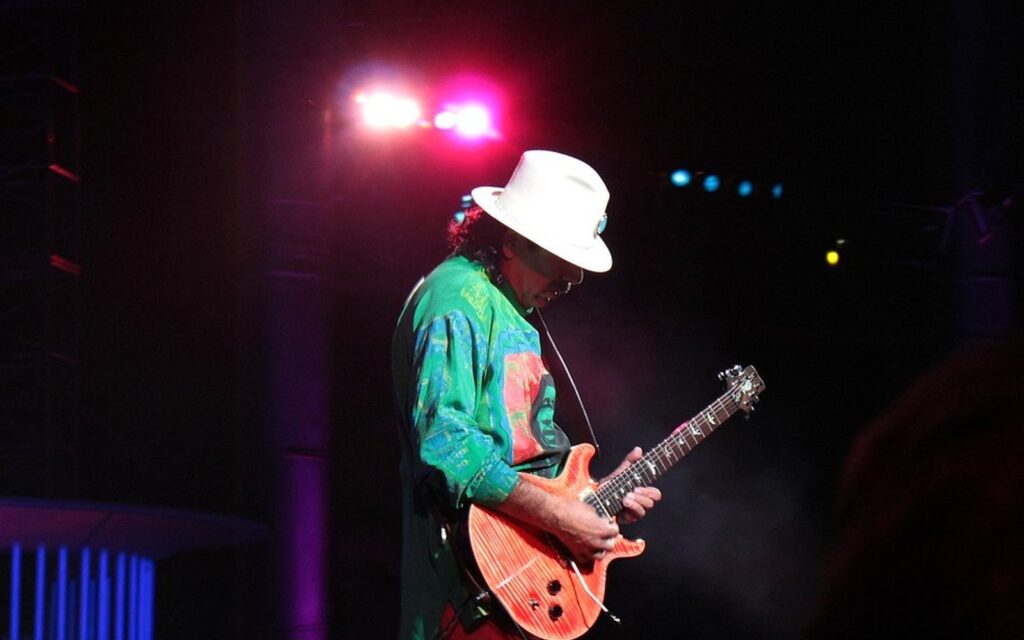Remembering one of music's greatest ever controversies.
On July 25, 1965, a crowd gathered to witness history in the making. Of course, the fans that flocked to Newport Folk Festival in 1965 probably didn’t realise just how historic the event was going to be—that is, until Bob Dylan walked on stage with a Fender Stratocaster and started a controversy that remains a point of contention to this day.
Read more interviews, columns and features here.
Newport Folk Festival 1965
Before Dylan took the stage at Newport ’65, he was the epitome of the folk music revival, as evidenced by footage of him performing at the festival just a year prior. His topical songwriting and acoustic sound saw him earn a reputation as the ultimate troubadour, supported by the minimal instrumentation and resonating lyrics featured on his recorded output.
But when Dylan released his fourth album, Another Side of Bob Dylan, he gave truth to the album title and made a record with a difference. The format might’ve remained the same, but the lyrics showed the singer-songwriter in a new light.
Dylan’s tone and focus had shifted, and his instrumentation was about to reflect that change in a momentous way.
His fifth record, Bringing It All Back Home, saw Dylan redefine genres through his blending of folk and rock & roll.
In his memoir, Chronicles, Dylan explains, “What I did to break away, was to take simple folk changes and put new imagery and attitude to them, use catchphrases and metaphor combined with a new set of ordinances that evolved into something different that had not been heard before.”
It was just a few months after the divisive release of this fifth album that Dylan appeared at Newport Folk Festival. It wasn’t his first time performing at the event, and it’s safe to assume crowds knew what to expect – namely, an acoustic guitar.
Fender Stratocaster
Instead, Dylan took to the stage with a humble Stratocaster, plugged in, and treated the crowd to an electrified rendition of ‘Maggie’s Farm’.
Backed by Al Kooper and The Paul Butterfield Blues Band, the former acoustic troubadour knocked out a set of just three songs – following the opener with ‘Like A Rolling Stone’ and ‘Phantom Engineer’, an early version of ‘It Takes a Lot to Laugh, It Takes a Train to Cry’ – before seemingly leaving the stage for the day.
He would soon return to perform ‘It’s All Over Now, Baby Blue’ and ‘Mr. Tambourine Man’ before it was, in fact, all over.
This is where opinions differ. During the set, it’s pretty much universally agreed upon that there was both booing and cheering from the crowd. The cause of the negative responses, however, is much less clear.
Some argue the shouts were from horrified fans who couldn’t believe Bob Dylan was playing electric guitar at a folk festival. He wasn’t the first to do so, of course, but he was shedding an image that a whole community had upheld, plugging into an amp and alienating his fans in the process—apparently.
This argument rises from the idea that for folk music to be authentic, it should be acoustic. By taking an electrified approach to his long-awaited set, many believe Dylan disappointed fans watching on in the Newport crowd.
Others are of the opinion that the distaste amongst the would-be revellers was not a result of shattered dreams, but of poor sound quality.
Comments over the years have indicated fans couldn’t hear Dylan’s vocals over the distorted sound of the guitar, and even folk icon Pete Seeger alleges he took issue with the inconsistent quality. (There’s a persistent rumour that says Seeger was looking for an axe to cut the cables because Dylan had gone electric. Seeger maintains he wanted to cut the cables as it was the only solution to fixing the sound problems. Mostly, it sounds like the kind of embellished tale that inevitably gains traction with a legend as good as this one).
All these years later, we still don’t have a definitive answer to what exactly the crowd was booing about at Newport on July 25, 1965.
The repercussions of Dylan going electric – both on stage and in the studio – followed him at later shows, with one fan famously voicing their displeasure with a shout of “Judas” less than twelve months later at Manchester Free Trade Hall.
Whatever the case, Bob Dylan’s electric set at Newport will forever hold a place in history – and continue to be the source of debate between music fans for decades to come.
Wikipedia features a play-by-play of the day, read about it here.
